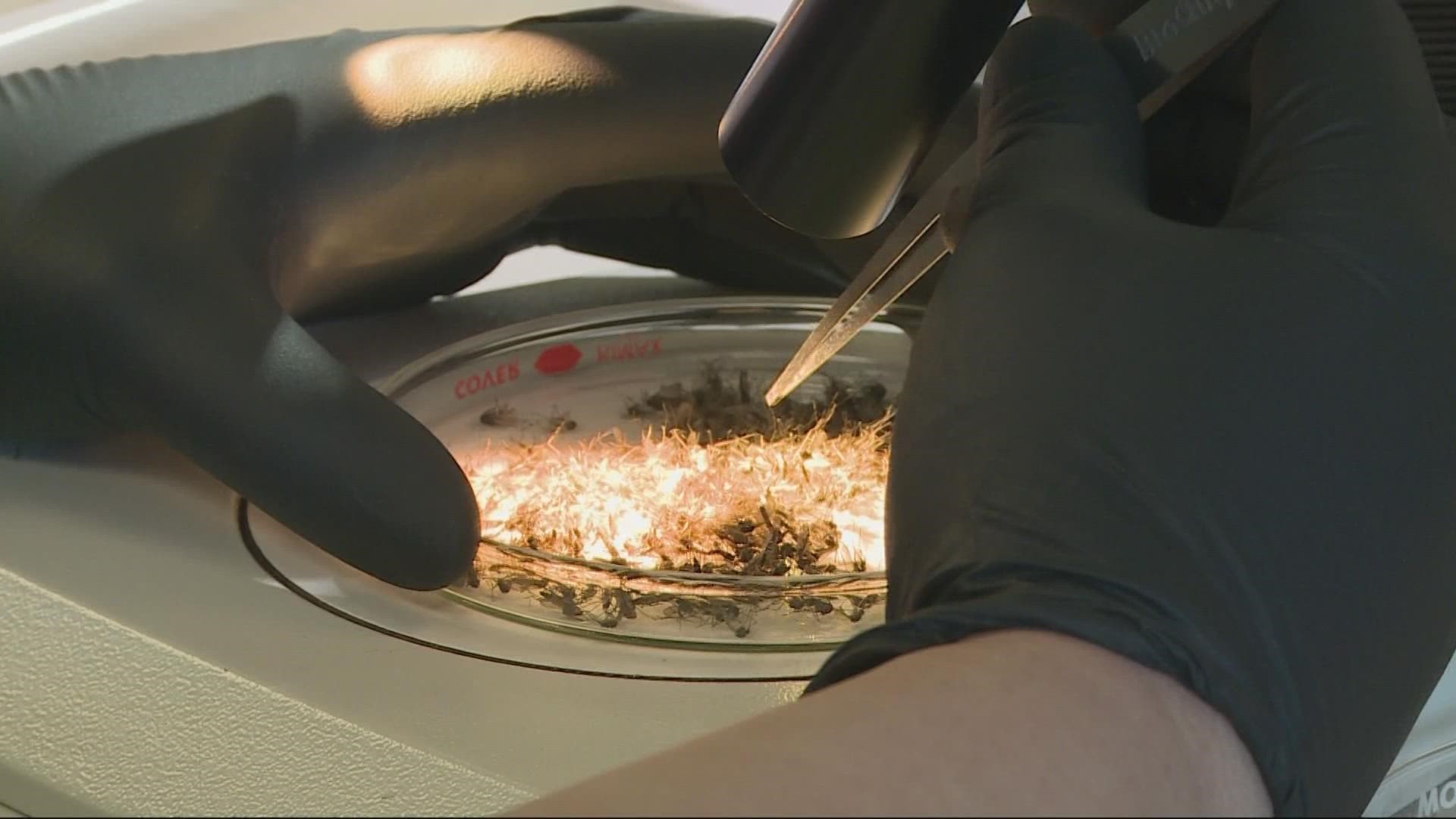PORTLAND, Oregon — It's not just you. Experts concur that this summer, the Portland metro area’s mosquito problem really bites.
“We had a lot of flooding and a lot of rain very late which caused a giant mosquito hatch,” said Bek Sudia, Vector Control supervisor for Multnomah County. “We're seeing the highest numbers in my career that I have ever seen. When I say high numbers, I mean catching 11,000 mosquitoes in a single trap ... after 14 hours."
In a normal year, Sudia said there would likely have been less than a hundred insects in the same trap.
The mosquitoes Sudia is busy trapping and the ones most people are likely seeing now are flood water mosquitos. This type of insect lays its eggs on dry ground, and they hatch — as their name implies — when the ground is flooded. But eggs can survive for up to three years. That means the eggs that didn't hatch last summer due to record heat and low river levels are definitely hatching now. They're getting added to this year's batch, boosted by record rain and high river levels.
“They flew behind my sunglasses and were touching my eyeballs and I was like, 'OK, this is not cool at all,” said Sudia, recalling a recent mosquito collection mission.
Every week, Sudia sorts through the trapped mosquitoes and sends samples of certain species to Oregon State University. There, they're tested for diseases including West Nile virus.
The good news is that these flood water mosquitoes aren't the culprits for transmitting disease, but they still suck. So what can be done about it? To help mitigate the problem, Multnomah County has been deploying its mosquito fogging truck in sparsely populated natural areas with large numbers of mosquitoes. That includes Sauvie Island and Hayden Island. The chemicals these trucks disperse are the same as those applied to pets to repel ticks, at one-tenth the volume. The goal is to decrease the volume of adult mosquitoes and prevent them from laying more eggs.
Across the Columbia River, the mosquito problem is just as heightened and irritating. Clark County is also using fogging trucks to kill mosquitoes. The difference is they're letting residents request fogging treatments for specific trouble spots.
“All the requests are important to us," said Mario Boisvert, district manager at the Clark County Mosquito Control District. He said their office has received more than 300 requests for fogging since June 20.
“The number of mosquitos, they are insane, they are everywhere,” said Boisvert.
While both sides of the river are fogging mosquitos, they're also preparing for what's to come. Boisvert said that in a couple weeks, he anticipates the Culex mosquitoes may begin to hatch. That’s the mosquito species which can carry and transmit West Nile virus.
Culex mosquitoes lay and hatch their eggs in standing water. This means that every day, crews in both Multnomah and Clark Counties are treating thousands of catch basins and manholes to prevent Culex mosquitoes from emerging.
“This year we have a lot of work,” said Boisvert. “We need to protect people either against nuisance or disease.”
Boisvert said fortunately, there has never been a case of West Nile in Clark County. Sudia said the last case of West Nile in Multnomah County occurred in 2007.
“We are always monitoring and sending our mosquitoes out for testing to ensure that they don't have West Nile,” said Sudia. "There is always the possibility because the species are here, and this year we have a lot of them.”
To protect yourself from mosquitoes, experts from both counties suggest using mosquito repellent, wearing long sleeves and pants when outdoors and remembering that mosquitoes are most active at dawn and dusk.

